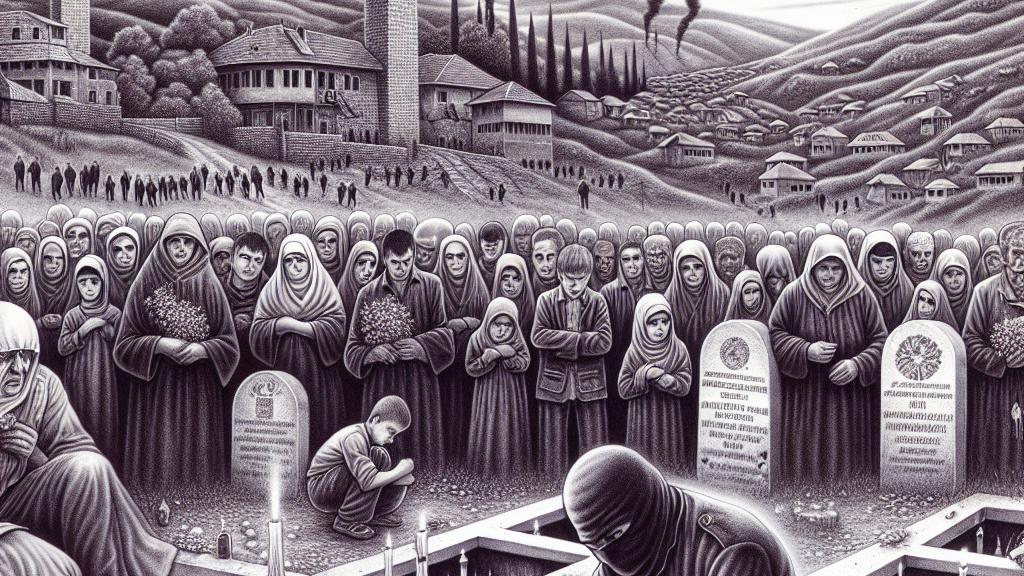Fugitive Frenzy: How a War Criminal Escaped Justice on a Somber Anniversary
Overview
- Sakib Mahmuljin, a convicted war criminal, is still on the run, eluding the clutches of justice.
- Memorial events poignantly emphasize the ongoing battle for accountability and healing.
- The pressing call for justice not only seeks to confront historical wrongs but also fosters hope for a reconciled future.

A solemn reminder of loss
In the evocative lands of Bosnia and Herzegovina, the 29th anniversary of the ghastly war crimes in Vozuca strikes a chord of deep sorrow. Families, their faces etched with grief, gathered at memorial sites to lay flowers, silently honoring the innocent lives claimed by ruthless violence—bodies unearthed in horrific conditions, some bearing the marks of brutal beheadings. And yet, in the backdrop of this somber reflection, the figure of war criminal Sakib Mahmuljin hovers persistently; although convicted for his role in these crimes, he continues to slip through the fingers of justice like sand in an hourglass. His escape to Turkey shrouds the community in a veil of frustration—how can real healing ever be achieved when justice remains perpetually out of reach?
A relentless quest for accountability
Mahmuljin's situation serves as a glaring testament to the flawed justice system in Bosnia. Sentenced to eight years for failing to stop the atrocities committed by the El Mujahideen unit—a group of foreign fighters who inflicted terror upon Serb civilians—his freedom feels like a bitter mockery to the victims' families, whose cries for justice hang in the air. Viktor Nuzdic, director of the Centre for Investigation of War and War Crimes, captures this sense of outrage perfectly, lamenting the absence of consequences for those of lower rank involved in heinous acts. Such sentiments echo across this war-torn land, amplifying the urgency for a restorative justice system capable of addressing the deep-seated grievances of its people. It is a heart-wrenching irony: as the memories of past atrocities refuse to fade, the quest for accountability feels as elusive as smoke.
From echoes of the past to pathways of hope
As the eyes of the world look toward Bosnia, the struggle for justice remains a powerful chapter waiting to be rewritten. The haunting legacy of figures like Ratko Mladic reminds us that accountability is not merely a legal obligation; it is a moral imperative. Survivors, yearning for more than just punishment, voice a profound desire for truth, reparations, and ultimately, healing—a chance to reclaim their identities and rebuild their lives. Each pleading cry for justice echoes through the mountains, acting as a poignant call to action, a stepping stone toward a future where understanding triumphs over division. In this moment of reckoning, Bosnia stands at a pivotal crossroads, faced with the choice of either letting the past bleed into the present or bravely cultivating a culture of peace and unity, thus forging enduring bonds that rise above the depths of tragedy.

Loading...